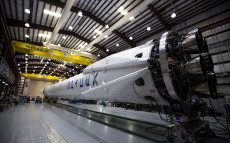- pathfindersAI
- Job Profile
Automotive Engineers
Summary
Automotive Engineers: Architects of Modern Transportation
What They Do
Automotive engineers are the innovative professionals behind the conceptualization, development, and enhancement of vehicles. Their role encompasses a wide range of activities aimed at making transportation safer, more efficient, and environmentally friendly. They not only design new vehicle models but also work tirelessly to improve the performance and functionality of existing ones. Automotive engineers play a pivotal role in the ever-evolving landscape of the automotive industry, pushing the boundaries of technology and design to meet the demands of modern society.
Job Responsibilities
The duties of an automotive engineer are multifaceted and include an array of technical and managerial tasks. At the core of their responsibilities is the design and development of new vehicles. This involves creating blueprints, conducting simulations, and constructing prototypes. Once a prototype is built, engineers rigorously test it to ensure it meets all regulatory standards and performance criteria. They are also responsible for diagnosing and resolving technical issues, conducting research to develop new materials and technologies, and collaborating with cross-functional teams, which may include professionals from manufacturing, marketing, and sales departments. Furthermore, automotive engineers must stay abreast of industry trends and advancements, integrating innovative solutions to enhance vehicle safety, efficiency, and user experience.
Essential Skills
To excel in the field of automotive engineering, individuals must possess a unique blend of technical competence and soft skills. Proficiency in computer-aided design (CAD) software and a robust understanding of mechanical and electrical engineering principles are fundamental. Additionally, strong analytical and problem-solving abilities are crucial, as automotive engineers frequently confront complex challenges that require inventive solutions. Effective communication skills are equally important, as these professionals must articulate their ideas and collaborate with team members from various disciplines. Furthermore, project management skills and attention to detail are vital in ensuring the successful execution of engineering projects within stipulated timelines and budgets.
Educational Pathways
Aspiring automotive engineers typically begin their academic journey with a bachelor's degree in automotive engineering, mechanical engineering, or a related field. This foundational education provides them with essential knowledge in areas such as thermodynamics, material science, and fluid mechanics. Hands-on experience through internships and co-op programs is highly beneficial, offering students a practical understanding of the industry. Advanced positions may require a master's degree or even a Ph.D., with specialized courses in automotive systems, vehicle dynamics, and powertrain technology. Continuous professional development through certifications and training programs is also advantageous, allowing engineers to keep pace with rapid technological advancements.
Career Prospects
The career prospects for automotive engineers are promising, fueled by the growing demand for innovative and sustainable transportation solutions. Employment opportunities abound in various sectors, including automobile manufacturing companies, research and development firms, and government agencies focused on transportation. As the industry pivots towards electric and autonomous vehicles, engineers with expertise in these cutting-edge technologies are particularly sought after. Additionally, automotive engineers may advance to leadership roles, managing large projects or entire teams, and may even transition into consultancy roles, providing expert advice to organizations within the automotive sector.
Conclusion
Automotive engineers are the vanguard of the automotive industry's quest for innovation and excellence. Their diverse responsibilities, from designing groundbreaking vehicles to solving intricate technical issues, underscore their vital contribution to modern transportation. Equipped with a solid educational foundation, essential technical skills, and a passion for continuous learning, automotive engineers are well-positioned to lead the industry into a future defined by technological advancement and sustainability. Earning a degree in this dynamic field promises a rewarding career characterized by constant growth and exciting opportunities.
Video
Compensation
| State | Median Salary | Median Hourly | Positions |
|---|---|---|---|
| AL | 97,050 | 46.66 | 5,280 |
| AK | 101,960 | 49.02 | 420 |
| AZ | 99,650 | 47.91 | 5,360 |
| AR | 74,840 | 35.98 | 1,000 |
| CA | 122,550 | 58.92 | 27,420 |
| CO | 101,700 | 48.89 | 7,100 |
| CT | 101,700 | 48.90 | 4,360 |
| DE | 102,070 | 49.07 | 580 |
| DC | 124,160 | 59.69 | 520 |
| FL | 92,810 | 44.62 | 8,520 |
| GA | 84,080 | 40.43 | 5,600 |
| HI | 97,140 | 46.70 | 530 |
| ID | 81,280 | 39.08 | 1,150 |
| IL | 99,420 | 47.80 | 10,260 |
| IN | 94,930 | 45.64 | 9,170 |
| IA | 97,120 | 46.69 | 5,340 |
| KS | 83,260 | 40.03 | 2,720 |
| KY | 95,820 | 46.07 | 2,970 |
| LA | 109,200 | 52.50 | 1,270 |
| ME | 98,690 | 47.45 | 850 |
| MD | 106,280 | 51.10 | 5,600 |
| MA | 108,490 | 52.16 | 9,140 |
| MI | 98,760 | 47.48 | 32,580 |
| MN | 94,520 | 45.44 | 5,660 |
| MS | 84,390 | 40.57 | 1,110 |
| MO | 82,700 | 39.76 | 3,360 |
| MT | 83,050 | 39.93 | 470 |
| NE | 86,240 | 41.46 | 880 |
| NV | 82,950 | 39.88 | 950 |
| NH | 99,990 | 48.07 | 2,950 |
| NJ | 102,370 | 49.22 | 4,830 |
| NM | 133,660 | 64.26 | 1,870 |
| NY | 97,410 | 46.83 | 8,190 |
| NC | 95,490 | 45.91 | 7,500 |
| ND | 84,690 | 40.72 | 730 |
| OH | 92,360 | 44.41 | 15,160 |
| OK | 94,860 | 45.61 | 2,130 |
| OR | 100,990 | 48.55 | 3,140 |
| PA | 97,340 | 46.80 | 19,060 |
| RI | 100,190 | 48.17 | 1,510 |
| SC | 95,880 | 46.10 | 4,530 |
| SD | 84,050 | 40.41 | 690 |
| TN | 97,770 | 47.01 | 2,400 |
| TX | 103,190 | 49.61 | 19,630 |
| UT | 93,720 | 45.06 | 3,450 |
| VT | 97,970 | 47.10 | 640 |
| VA | 101,900 | 48.99 | 6,150 |
| WA | 104,510 | 50.25 | 7,190 |
| WV | 96,300 | 46.30 | 720 |
| WI | 86,200 | 41.44 | 8,400 |
| WY | 105,860 | 50.90 | 250 |
Similar Occupations
In this area you will find other occupations that are close to the one you were viewing in tasks, knowledge and work environment. If the primary job profile you are viewing isn't quite to your liking, take a look around and see what else is available.
Basic and Premium Accounts have more alternative occupations available than the Free account.

Aerospace Engineers - 17-2011.00
Aerospace Engineers design, develop, and test aircraft, spacecraft, and related systems and equipment to ensure they meet safety, performance, and regulatory standards. They work on a range of areas including structural design, navigation systems, propulsion, and aerodynamics to advance aviation and space exploration technology.
-
$130,720/yr
Median Pay -
66,660
Number of Jobs

Electrical Engineers - 17-2071.00
Electrical engineers design, develop, and maintain electrical systems and components to ensure their efficient and reliable operation. They work on a diverse range of technologies including power generation, electronics, telecommunications, and control systems, innovating solutions to meet both current and emerging technological needs.
-
$106,950/yr
Median Pay -
185,430
Number of Jobs